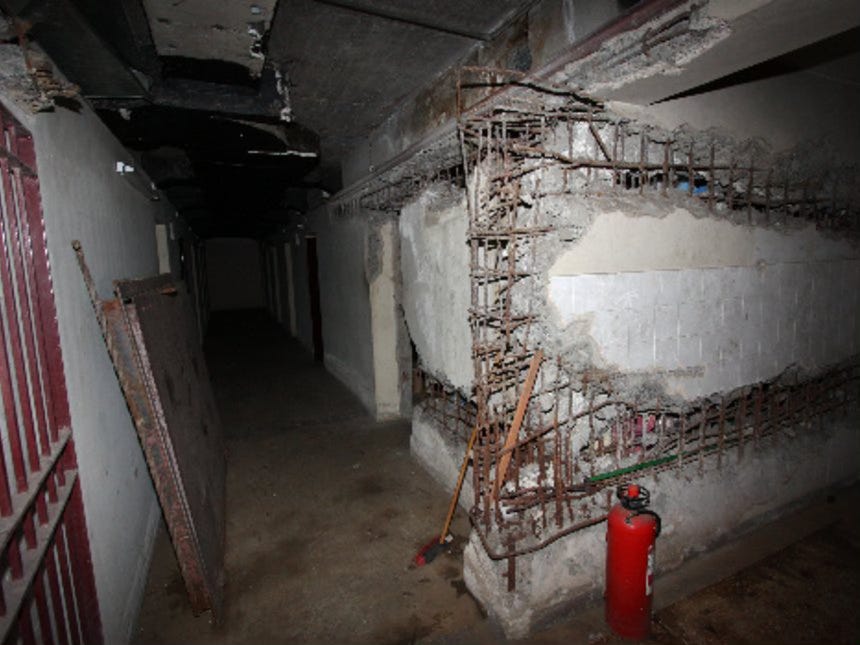Now, as an insufferable lover of early-twentieth century European literature and philosophy, I use the term kafkaesque far too liberally. If I wrote a list of my ten favourite words, this would easily sit in my top three. It’s a word that describes so much of the techno-bureaucratic nightmare that is our modern age. In the west, we have digitised everything. There is nothing that cannot be solved with the right password (harder than it sounds), 2-factor authentication and a smartphone. No matter the problem, we’ve found a way to automate 99% of the process. This has its own issues, but they are exceptions to a rule of general bureaucratic betterment.
In Kenya, however, it’s an entirely different story. We had been in the country for two months and we needed to extend our tourist visa (which expired 27th May). We arranged our eTA (visa) online, so one might expect you to be able to extend online, too.
Nope.
We read that you must visit the Department of Immigration, in-person, at Nyayo House, Nairobi, in order to extend your tourist visa. Nyayo House is no ordinary government building. This is a 20+ story skyscraper filled with tiny windows and state-wide corruption. Built in the 1970s, the building is famous for its basement torture chambers, where opponents of the Moi government were beaten for their dissent.
We knew none of this last Tuesday when we hopped into an Uber to extend our visas. A thirty-minute ride across town brought us to this oppressive building, towering over Kenyatta Avenue, an extremely busy part of town. It was hot and smell of burning fuel stung our nostrils. As we rounded the corner to the entrance, we were met with sheer chaos. A queue of assorted nationalities, some 50m in length, extended to the far side of the building and wrapped around it, no end in sight. There were motorbikes, cars and military vehicles beeping horns and dozens of people were weaving around the standstill traffic. We approached the woman in military uniform at the front of the queue and she swivelled around so that her machine gun pointed at our toes.
“Is this the queue for visa extensions?” I asked.
“No foreign national services today. Come back next Monday.” She said.
“Are you sure? Our visa expires next Monday. Isn’t there anything you can do?” I responded, half-disappointed but also quite pleased we wouldn’t have to join the queue.
“No, come back next week,” she turned and faced the queue, “No foreign services today. Anybody who needs foreign services, please come back next Monday.”
At this, well over twenty people exited the queue, took out their phones and began to vent at someone, somewhere in the world who cared very deeply about their predicament. Just as I took out my own phone to call an Uber back to the apartment, a well-dressed man appeared at our side. I glanced down at Ellie to see if she was carrying a lamp.
“You need visa extension? I am an agent.” He said.
“Oh, I thought you were a genie.” I responded matter-of-factly.
He smiled. “I can get you an extension. 3,000 shillings each.”
We stuttered for an excuse, I told him thank you, but no. Why would this man, this agent, be able to help us when we’d been told - by somebody holding a gun, no less - that it was not possible.
But just as we pulled away in our Uber, I saw this same gentleman breeze past security, walk through the staff entrance and disappear into the labyrinth of Nyayo House. Ellie had seen exactly the same thing. We assumed him to be a scammer, but he clearly worked for the government in some capacity. Was he genuine? Could he have resolved our problem? After the bizarre events of chapter 2, I think he could’ve.
We arrived home and called the Immigration service, who told us that systems were indeed down. We emailed, to no avail. We braced ourselves for a return to Nyayo House, on the day our visas expired. This time, we wouldn’t take no for an answer. We literally didn’t have a choice.





